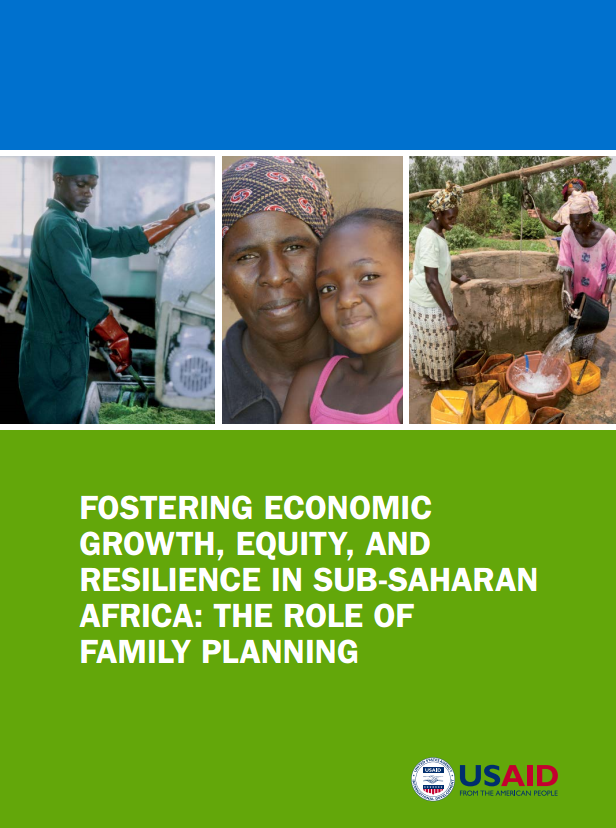-
State of the World Population 2016, and Fostering Development Through Family Planning
January 4, 2017 By Anam Ahmed The United Nations Population Fund’s 2016 State of the World Population report calls for investment in a very specific demographic: 10-year-old girls. At age 10, young girls are at a “pivotal” stage in their lives, the report says. They face a world of limitless possibilities, yet far too many end up thwarted in their ambitions by sexual violence, forced marriage, female genital mutilation, child labor, and other “systematic disadvantages.”“Impeding a girl’s safe, healthy path through adolescence to a productive and autonomous adulthood is a violation of her rights,” United Nations Population Fund Executive Director Dr. Babatunde Osotimehin says in the report’s foreword. “But it also takes a toll on her community and nation. Whenever a girl’s potential goes unrealized, we all lose.” The report finds that if all the 10-year-old girls who are either expected to drop out of school or do not have access to an education at all successfully completed their secondary education, it would unlock a $21 billion annual dividend for developing countries. The report recommends banning harmful practices, such as child marriage, and increasing household cash transfers to subsidize female schooling. It also points to the provision of life skills training and age-appropriate comprehensive sexuality education.
The United Nations Population Fund’s 2016 State of the World Population report calls for investment in a very specific demographic: 10-year-old girls. At age 10, young girls are at a “pivotal” stage in their lives, the report says. They face a world of limitless possibilities, yet far too many end up thwarted in their ambitions by sexual violence, forced marriage, female genital mutilation, child labor, and other “systematic disadvantages.”“Impeding a girl’s safe, healthy path through adolescence to a productive and autonomous adulthood is a violation of her rights,” United Nations Population Fund Executive Director Dr. Babatunde Osotimehin says in the report’s foreword. “But it also takes a toll on her community and nation. Whenever a girl’s potential goes unrealized, we all lose.” The report finds that if all the 10-year-old girls who are either expected to drop out of school or do not have access to an education at all successfully completed their secondary education, it would unlock a $21 billion annual dividend for developing countries. The report recommends banning harmful practices, such as child marriage, and increasing household cash transfers to subsidize female schooling. It also points to the provision of life skills training and age-appropriate comprehensive sexuality education. In a recent report prepared for the U.S. Agency for International Development, Ishrat Husain, Kaitlyn Patierno, Rhonda Smith, and Inday Zosa-Feranil explore the cross-sectoral benefits of family planning in sub-Saharan Africa. The authors track progress made in improving access to services, knowledge, and other performance indicators over the last five years in 21 countries. They also present an analysis on the role of family planning in reducing inequality in four countries: Rwanda, Kenya, Uganda, and Nigeria. Their findings reflect the broader role that family planning can play in fostering development. By affecting demographic structures, the authors find that access to family planning can strengthen economic growth and global competitiveness. It can also advance inclusive growth and build resilience for families, communities, and nations by closing the fertility gap between the rich and the poor and stabilizing national population growth rates. These results are expected to translate into “eased pressures on the job market, fewer unemployed youth, and as a consequence, an environment more conducive to cultivating strong democracies.” But the importance of family planning to achieving development goals is still underappreciated by most leaders.
In a recent report prepared for the U.S. Agency for International Development, Ishrat Husain, Kaitlyn Patierno, Rhonda Smith, and Inday Zosa-Feranil explore the cross-sectoral benefits of family planning in sub-Saharan Africa. The authors track progress made in improving access to services, knowledge, and other performance indicators over the last five years in 21 countries. They also present an analysis on the role of family planning in reducing inequality in four countries: Rwanda, Kenya, Uganda, and Nigeria. Their findings reflect the broader role that family planning can play in fostering development. By affecting demographic structures, the authors find that access to family planning can strengthen economic growth and global competitiveness. It can also advance inclusive growth and build resilience for families, communities, and nations by closing the fertility gap between the rich and the poor and stabilizing national population growth rates. These results are expected to translate into “eased pressures on the job market, fewer unemployed youth, and as a consequence, an environment more conducive to cultivating strong democracies.” But the importance of family planning to achieving development goals is still underappreciated by most leaders.Sources: United Nations Population Fund, U.S. Agency for International Development.
Topics: Africa, demography, development, Dot-Mom, economics, family planning, gender, global health, Kenya, Nigeria, population, Reading Radar, Rwanda, SDGs, Uganda, UN, UNFPA, USAID, youth
 A Publication of the Stimson Center.
A Publication of the Stimson Center.





